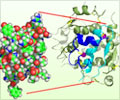DPP4 inhibitors a class of diabetes medications were found to be neutral with respect to cardiovascular events in veterans with no prior heart disease.

Primary Occurrence of Cardiovascular Events After Adding Sodium-Glucose Cotransporter-2 Inhibitors or Glucagon-like Peptide-1 Receptor Agonists Compared With Dipeptidyl Peptidase-4 Inhibitors
Go to source). “We believe this study is an important contribution to patient care and adds to what we as clinicians know about treating diabetes and heart disease prevention,” said Christianne Roumie, MD, MPH, professor of Medicine in the Division of General Internal Medicine and Public Health and senior author of the study.
‘A new research did not assess the use of commonly used diabetes drugs GGLP1 receptor agonists, SGLT2 inhibitors or DPP4 inhibitors as first-line therapies for Type 2 diabetes treatment.’





More than 30 million adults in the United States have diabetes mellitus, (2✔ ✔Trusted SourceDiabetes Statistics
Go to source) and this diagnosis increases risk for adverse cardiovascular events (heart attack, stroke or cardiovascular death) and heart failure hospitalization, noted Lee Richardson, MD, a fellow in the Division of Cardiovascular Medicine and first author of the new study.
Effect of Diabetes Drugs on Heart Health
The researchers sought to address two knowledge gaps, Richardson said: first, that many newer diabetes medications were tested versus a placebo, making it difficult to know if one type offers an advantage over another, and second, that the clinical trials showing cardiovascular benefits for these drugs were conducted in people who already had heart disease.“We wanted to see if there were differences in MACE — major adverse cardiovascular events — when comparing two commonly used drug classes, GLP1 receptor agonists and SGLT2 inhibitors, versus an active comparator, DPP4 inhibitors, in people without heart disease,” Richardson said.
In a retrospective cohort study of U.S. veterans, the researchers found addition of a GLP1 receptor agonist was associated with about a 20% reduced risk of MACE and heart failure hospitalization, compared to treatment with a DPP4 inhibitor in patients with Type 2 diabetes and no prior heart disease. The reduced risk translates to about three fewer heart failure, death, heart attack or stroke events in 1,000 people using the medication for a year, Roumie said.
SGLT2 inhibitors did not reduce MACE and heart failure hospitalization compared to DPP4 inhibitors for primary heart disease prevention.
The study included nearly 100,000 veterans who received a first prescription for an antidiabetic medication (metformin,
Advertisement
“Diabetes and its complications represent an enormous health care burden and result in nearly 200,000 deaths annually, often due to heart disease,” Roumie said. “Doctors, scientists and patients want to do our best to prevent heart disease for those who are at highest risk. We believe that future primary prevention trials with these antidiabetic medications are needed. For some patients, these medications cost a lot, but if they prevent heart disease, then there would be a great return on investment.”
Advertisement
“The hope for future primary prevention trials is that they would enroll a diverse cohort of participants who represent the patients we see in our clinics on a day-to-day basis,” he said.
GLP1 receptor agonists include the medications exenatide, liraglutide, semaglutide and others; SGLT2 inhibitors include empagliflozin, dapagliflozin and canagliflozin; DPP4 inhibitors include alogliptin, linagliptin, saxagliptin and sitagliptin.
References:
- Primary Occurrence of Cardiovascular Events After Adding Sodium–Glucose Cotransporter-2 Inhibitors or Glucagon-like Peptide-1 Receptor Agonists Compared With Dipeptidyl Peptidase-4 Inhibitors - (https://www.acpjournals.org/doi/10.7326/M22-2751)
- Diabetes Statistics - (https://diabetesresearch.org/diabetes-statistics/)















